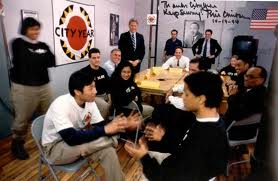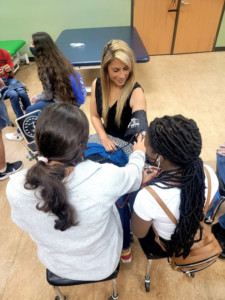Good Work: Serving Ideas

Last night at the Correspondents’ Dinner, President Obama said Congress “took a break from their exhausting schedule of not passing any laws to be here tonight.”
I spent the week in DC. The unprecedented level of bitter partisanship makes it an interesting place to be these days. With historically low levels of public approval, Congress gives DC a bad name. Bound to make things worse, the monumentally bad decision by the Supreme Court unleashing super PAC contributions will make the next election cycle the most expensive in history.
Despite the Congressional fundraising treadmill and the sharks and hired guns that come with that, Washington DC is full of idealistic folks, young and old, trying to make this country a better place to live, learn, work, and play. It may be the greatest confluence of advocates on the planet.
A young friend of ours just arrived for an internship with the frozen food association. It’s not a subject she’s passionate about, but a great chance to see how the place works. She will gain an unusual and valuable set of skills that she will soon be able to deploy to make a lot of money or to make a difference
Many of the people that work in DC want to make a difference at scale. Advocacy work is different than direct service where the rewards can be immediate and visceral—the sparkle in a child’s eye as they learn, a mother who is grateful that her family won’t go hungry, or a man relieved to gain employment. Evidence of impact from advocacy work is usually disassociated with effort in time and space. Social and political change is complex. Without the benefit of crisis, it requires sustained and strategic effort.
A couple of my favorite DC advocacy shops include the Alliance for Excellent Education (the high school folks), Society for Science & the Public (the science fair people), New American Foundation (the new idea people), College Success Foundation (the scholarship people), SETDA & COSN (the edtech people), and iNACOL (the online & blended learning association).
The Peace Corps provides direct service. Think of the young people that go to Washington DC as the Cognitive Corps—working in service of an idea or ideal. Advocacy work is an attempt to make a difference at scale. If there is any success, it will be delayed gratification. But for the right cause, it is work worth doing.








0 Comments
Leave a Comment
Your email address will not be published. All fields are required.